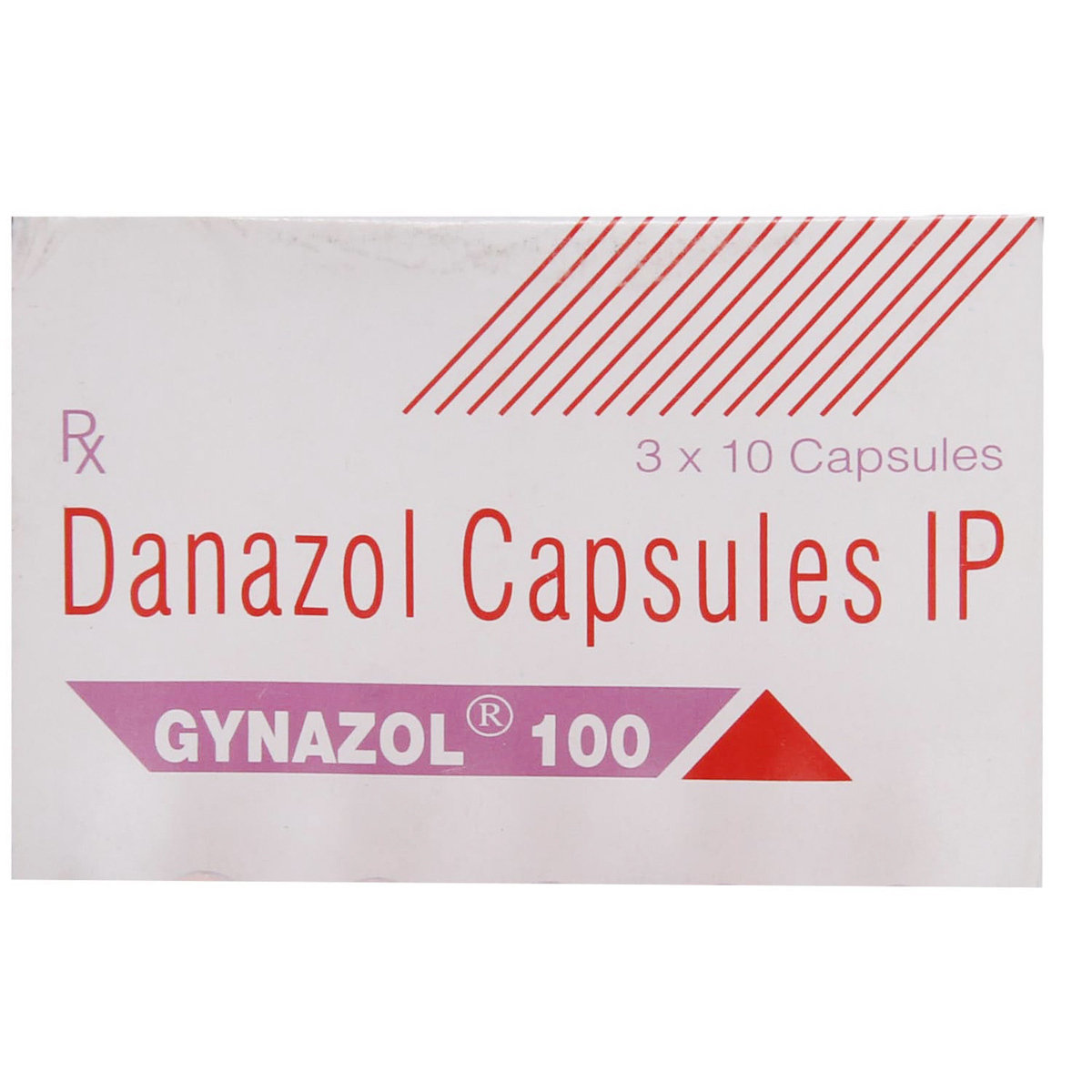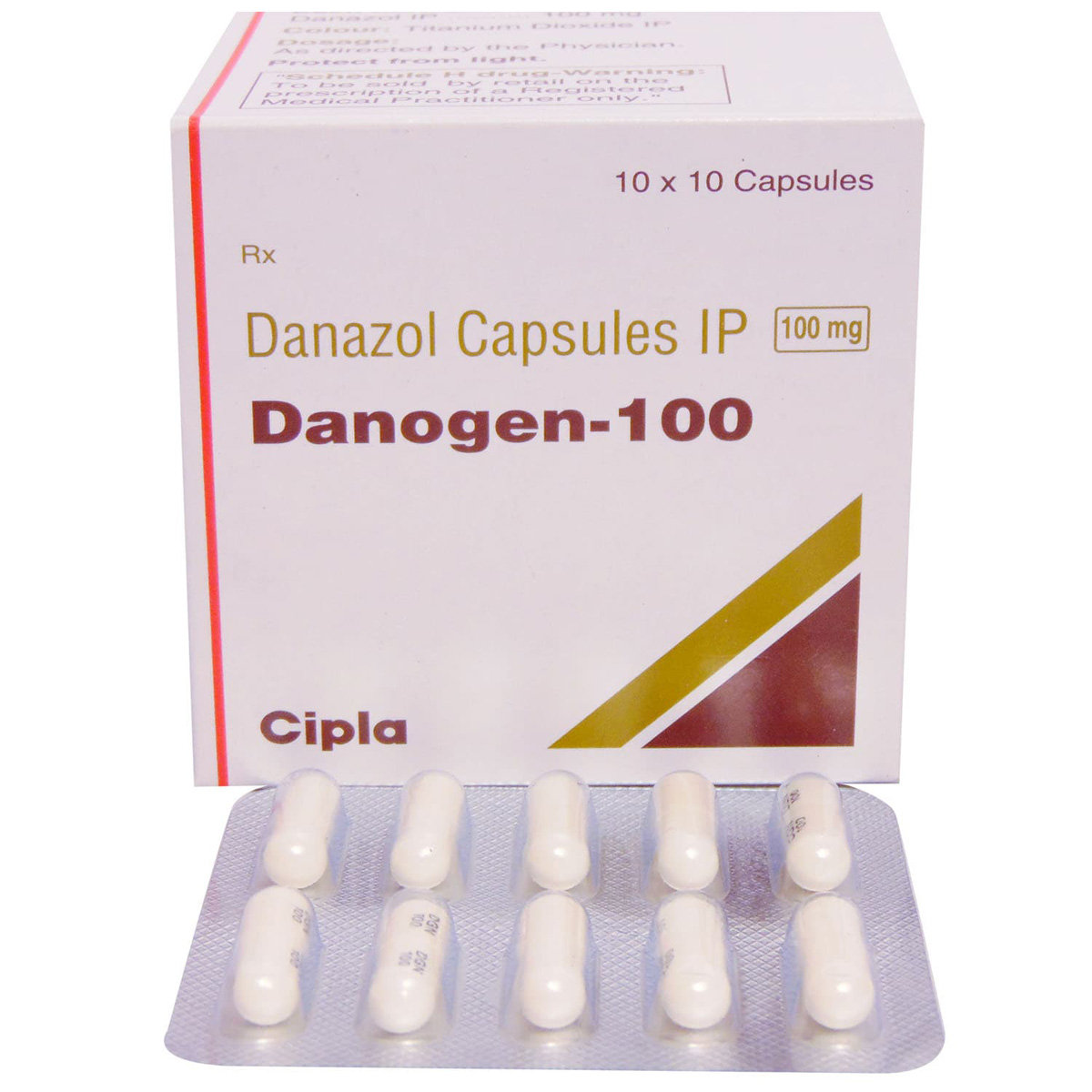ZENDOL 100MG CAPSULE



MRP ₹379.5
(Inclusive of all Taxes)
₹56.9 Cashback (15%)
know your delivery time
Provide Delivery Location
Composition :
Manufacturer/Marketer :
Consume Type :
Expires on or after :
Return Policy :

Secure Payment

Trusted by 8 Crore Indians

Genuine Products
Therapeutic Class
Country of origin
Manufacturer/Marketer address
Author Details
We provide you with authentic, trustworthy and relevant information
Disclaimer
Alcohol
Safe if prescribed
Avoid or limit alcohol consumption with ZENDOL 100MG CAPSULE as it may cause shortness of breath or make you feel sick.
Pregnancy
Consult your doctor
ZENDOL 100MG CAPSULE is not recommended for pregnant women as it may cause birth defects. Please consult a doctor if you are pregnant or planning for pregnancy.
Breast Feeding
Consult your doctor
ZENDOL 100MG CAPSULE is contraindicated in breastfeeding women as small amounts of ZENDOL 100MG CAPSULE may be excreted in breast milk. Please consult a doctor if you are breastfeeding.
Driving
Safe if prescribed
ZENDOL 100MG CAPSULE may cause dizziness, vertigo (spinning feeling) or blurred vision. Therefore, avoid driving if you experience any of these symptoms after taking ZENDOL 100MG CAPSULE.
Liver
Consult your doctor
Take ZENDOL 100MG CAPSULE with caution, especially if you have a history of Liver diseases/conditions. The dose may be adjusted by your doctor as required. Avoid taking ZENDOL 100MG CAPSULE if you have severe liver disease.
Kidney
Consult your doctor
Take ZENDOL 100MG CAPSULE with caution, especially if you have a history of Kidney diseases/conditions. The dose may be adjusted by your doctor as required. Avoid taking ZENDOL 100MG CAPSULE if you have severe kidney disease.
Children
Safe if prescribed
Please consult a doctor regarding the use of ZENDOL 100MG CAPSULE in children.
Product Substitutes
About ZENDOL 100MG CAPSULE
ZENDOL 100MG CAPSULE belongs to the class of drugs called synthetic steroids used to treat endometriosis and breast cysts. Endometriosis is a disorder in which the tissue lining the uterus (endometrium) grows on the ovaries, bowel, or tissues lining the pelvis. The most common symptom is pelvic pain.
ZENDOL 100MG CAPSULE contains Danazol which works by suppressing the activity of ovaries. Thus, it decreases the amount of estrogen in the body and induces temporary menopause. Thereby, it shrinks the tissue outside the uterus or stops its growth.
Take ZENDOL 100MG CAPSULE as prescribed by your doctor. You are advised to take ZENDOL 100MG CAPSULE for as long as your doctor has prescribed it for you based on your medical condition. In some cases, you may experience sore throat, hoarse voice, hair loss, excessive hair growth on the body or face, stomach pain, skin rashes, or chest pain. Most of these side effects of ZENDOL 100MG CAPSULE do not require medical attention and gradually resolve over time. However, if the side effects persist or worsen, please consult your doctor.
If you are allergic to ZENDOL 100MG CAPSULE or any other medicines, please tell your doctor. ZENDOL 100MG CAPSULE is contraindicated in pregnant and breastfeeding women. You are recommended to avoid or limit consumption of alcohol with ZENDOL 100MG CAPSULE as it may cause shortness of breath or make you feel sick. Drive only if you are alert as ZENDOL 100MG CAPSULE may cause dizziness, vertigo (spinning feeling), or blurred vision. If you are about to undergo any surgery, please inform your doctor that you are taking ZENDOL 100MG CAPSULE as it may increase the effect of certain anesthetics.
Uses of ZENDOL 100MG CAPSULE
Medicinal Benefits Mweb
Key Benefits
ZENDOL 100MG CAPSULE contains Danazol which decreases the amount of estrogen in the body by suppressing the activity of ovaries. Thus, ZENDOL 100MG CAPSULE induces temporary menopause and shrinks the tissue outside the uterus or stops its growth. Also, ZENDOL 100MG CAPSULE works by inhibiting the release of hormones in the body that cause breast pain and lumps.
Directions for Use
Side Effects of ZENDOL 100MG CAPSULE
- Sore throat
- Hoarse voice
- Hair loss
- Excessive hair growth on body or face
- Stomach pain
- Skin rashes
- Chest pain
Drug Warnings
If you are allergic to ZENDOL 100MG CAPSULE or any other medicines, please tell your doctor. ZENDOL 100MG CAPSULE is contraindicated in pregnant and breastfeeding women. It is advised to use effective non-hormonal contraceptives to avoid pregnancy while taking ZENDOL 100MG CAPSULE as it may cause birth defects. You are recommended to avoid or limit consumption of alcohol with ZENDOL 100MG CAPSULE as it may cause shortness of breath or make you feel sick. Drive only if you are alert as ZENDOL 100MG CAPSULE may cause dizziness, vertigo (spinning feeling), or blurred vision. If you are about to undergo any surgery, please inform your doctor that you are taking ZENDOL 100MG CAPSULE as it may increase the effect of certain anesthetics. If you have pain while moving your legs or arms, stop taking ZENDOL 100MG CAPSULE and consult a doctor immediately as this might be due to a blood clot.
Drug-Drug Interactions
Drug-Drug Interactions
Login/Sign Up
Using pimozide together with Zendol 100mg Capsule may significantly increase the blood levels of pimozide.
How to manage the interaction:
Taking Zendol 100mg Capsule with Pimozide is not recommended, please consult your doctor before taking it. You should seek immediate medical attention if you develop sudden dizziness, lightheadedness, fainting, shortness of breath, or heart palpitations. Do not stop using any medication without doctor's advice.
Combining Zendol 100mg Capsule and Simvastatin can increase the blood levels and effects of Simvastatin.
How to manage the interaction:
Taking Zendol 100mg Capsule and Simvastatin together is not recommended as it can lead to an interaction, but it can be taken if advised by your doctor. However, if you experience any symptoms like muscle pain, tenderness, or weakness, fever or dark colored urine, chills, joint pain or swelling, unusual bleeding or bruising, skin rash, itching, loss of appetite, fatigue, nausea, vomiting, and yellowing of the skin or eyes, contact your doctor immediately. Do not discontinue any medications without consulting your doctor.
Coadministration of Ketoconazole and Zendol 100mg Capsule may increase the risk of liver damage.
How to manage the interaction:
Although taking Ketoconazole and Zendol 100mg Capsule together can result in an interaction, it can be taken if a doctor has prescribed it. However, if you experience any of the following symptoms: fever, chills, joint pain or swelling, unusual bleeding or bruising, skin rash, itching, fatigue, lack of appetite, nausea, vomiting, abdominal pain, dark urine, light stools, yellowing of the skin or eyes, consult the doctor. Do not discontinue any medication without consulting a doctor.
Combining Leflunomide with Zendol 100mg Capsule may increase the risk of liver problems.
How to manage the interaction:
Co-administration of Zendol 100mg Capsule with Teriflunomide can result in an interaction, but it can be taken if your doctor has advised it. If you have any of these symptoms fever, chills, joint pain, swelling, bruising, skin rash, itching, loss of appetite, fatigue, nausea, vomiting, abdominal pain, dark-colored urine, or unusual bleeding contact a doctor right away. Do not stop using any medications without a doctor's advice.
Using atorvastatin together with Zendol 100mg Capsule may significantly increase the blood levels of atorvastatin.
How to manage the interaction:
Concomitant administration of atorvastatin along with Zendol 100mg Capsule can result in an interaction, it can be taken if a doctor has advised it. However, if you experience muscle pain, tenderness, or weakness, accompanied by fever or dark colored urine, chills, joint pain or swelling, unusual bleeding or bruising, skin rash, itching, loss of appetite, fatigue, nausea, vomiting, dark colored urine, light colored stools, and/or yellowing of the skin or eyes, you should consult the doctor. Do not stop taking any medication without doctor's advice.
Coadministration of Warfarin with Zendol 100mg Capsule can increase the risk of bleeding.
How to manage the interaction:
Although there is a possible interaction between Zendol 100mg Capsule and warfarin, you can take these medicines together if prescribed by a doctor. However, if you notice unusual bleeding or bruising, vomiting, blood in your urine or stools, headache, dizziness, or weakness, contact a doctor immediately. Do not stop using any medications without consulting a doctor.
Combining Lomitapide with Zendol 100mg Capsule can increase the blood levels of Lomitapide.
How to manage the interaction:
Co-administration of Zendol 100mg Capsule with Lomitapide can possibly result in an interaction, but it can be taken if your doctor has advised it. However, if you experience diarrhea, nausea, stomach pain, constipation, or any other discomfort, fever, joint pain, or skin rash consult a doctor. Do not stop using any medications without first talking to your doctor.
Combining Leflunomide with Zendol 100mg Capsule may increase the risk of liver problems.
How to manage the interaction:
Although taking Zendol 100mg Capsule and Leflunomide together can cause an interaction, it can be taken if your doctor has suggested it. However, if you experience fever, chills, joint pain, swelling, bruising, skin rash, itching, loss of appetite, fatigue, nausea, vomiting, abdominal pain, dark-coloured urine, liver damage, or bleeding - make sure to contact a doctor right away. Do not stop using any medications without a doctor's advice.
Combining Mipomersen with Zendol 100mg Capsule may increase the risk of liver problems.
How to manage the interaction:
Co-administration of Zendol 100mg Capsule with Mipomersen can possibly result in an interaction, but it can be taken if your doctor has advised it. However, if you experience fever, chills, joint pain, swelling, bruising, skin rash, itching, loss of appetite, fatigue, nausea, vomiting, abdominal pain, dark urine, bleeding, or liver damage contact a doctor right away. Do not stop using any medications without first talking to a doctor.
Using cisapride together with Zendol 100mg Capsule may significantly increase the blood levels of cisapride.
How to manage the interaction:
Although there is a possible interaction between Zendol 100mg Capsule and Cisapride, you can take these medicines together if prescribed by your doctor. However, if you experience dizziness, lightheadedness, fainting, shortness of breath, or heart palpitations, contact a doctor right away. Do not discontinue any medications without first consulting your doctor.
Drug-Food Interactions
Drug-Food Interactions
Login/Sign Up
Drug-Diseases Interactions
Drug-Diseases Interactions
Login/Sign Up
Drug-Drug Interactions Checker List
- WARFARIN
- TACROLIMUS
- CICLOSPORIN
- SIMVASTATIN
- ALFACALCIDOL
- PROGESTERONE
- TESTOSTERONE
- ESTROGEN
Habit Forming
Special Advise
- If you are supposed to take ZENDOL 100MG CAPSULE for more than 6 months, your doctor may recommend an ultrasound test to check your liver condition.
- Regular blood tests are recommended while taking ZENDOL 100MG CAPSULE to monitor liver functioning and blood levels.
- ZENDOL 100MG CAPSULE may affect the results of certain blood tests used to check liver and thyroid function, hormone testosterone levels, sugars, fats, and protein levels in the blood. Therefore, inform your doctor that you are taking ZENDOL 100MG CAPSULE before undergoing any tests.
Diet & Lifestyle Advise
- Avoid fried and processed foods.
- Include fiber-rich foods like whole grains, fruits, and vegetables in your diet.
- Avoid refined carbohydrates that are high in sugars.
- Replace animal proteins (like eggs, fish, and meat) with vegetable protein sources (nuts, seeds, and beans).
- Avoid drinking excess alcohol or caffeinated drinks as they can worsen the symptoms.
- Maintain a healthy weight, and do moderate exercise regularly.
- Avoid smoking and alcohol intake.
All Substitutes & Brand Comparisons
RX
Out of StockDansoford 100mg Capsule
Leeford Healthcare Ltd
₹24.4
(₹2.2 per unit)
93% CHEAPERRX
Out of StockDanagil 100mg Capsule
Werke Healthcare
₹165
(₹14.85 per unit)
56% CHEAPERRX
Out of StockDaynic 100 Capsule
Asterisk Laboratories India Pvt Ltd
₹229
(₹20.61 per unit)
39% CHEAPER

Have a query?
Buy best Obstetrics And Gynaecology products by
Sun Pharmaceutical Industries Ltd
Serum Institute Of India Pvt Ltd
Bharat Serums and Vaccines Ltd
Intas Pharmaceuticals Ltd
Akumentis Healthcare Ltd
Torrent Pharmaceuticals Ltd
Koye Pharmaceuticals Pvt Ltd
Abbott India Ltd
Cipla Ltd
Emcure Pharmaceuticals Ltd
Lupin Ltd
Neon Laboratories Ltd
Walter Bushnell
Zydus Cadila
Corona Remedies Pvt Ltd
Jagsonpal Pharmaceuticals Ltd
Mankind Pharma Pvt Ltd
Zydus Healthcare Ltd
Aristo Pharmaceuticals Pvt Ltd
Alembic Pharmaceuticals Ltd
Gufic Bioscience Ltd
Mylan Pharmaceuticals Pvt Ltd
Sanzyme Pvt Ltd
Lincoln Pharmaceuticals Ltd
Macleods Pharmaceuticals Ltd
West Coast Pharmaceuticals Pvt Ltd
Eris Life Sciences Ltd
Pfizer Ltd
Xeno Pharmaceuticals
Fourrts India Laboratories Pvt Ltd
TTK Healthcare Ltd
Ar-Ex Laboratories Pvt Ltd
Glenmark Pharmaceuticals Ltd
Samarth Life Sciences Pvt Ltd
Systopic Laboratories Pvt Ltd
Vivo Lifesciences Pvt Ltd
Bayer Zydus Pharma Pvt Ltd
Blisson Mediplus Pvt Ltd
Dewcare Concept Pvt Ltd
Organon India Ltd
Pharmanova India Drugs Pvt Ltd
Wellesta Healthcare Pvt Ltd
Win Medicare Ltd
Cadila Pharmaceuticals Ltd
Martin & Harris Pvt Ltd
Pharmanova Specialties Pvt Ltd
Shield Healthcare
Svizera Healthcare
Chem Med Pharmaceuticals
Eurozen Healthcare
Ferring Pharmaceuticals Pvt Ltd
German Remedies Ltd
Goddres Pharmaceuticals Pvt Ltd
Hetero Healthcare Pvt Ltd
Indiabulls Pharmaceuticals Pvt Ltd
Infar India Ltd
La Renon Healthcare Pvt Ltd
Uni Sankyo Ltd
Zuventus Healthcare Ltd
Alkem Laboratories Ltd
Amelia Healthcare Pvt Ltd
Bio Mines
Blisson Medica Pvt Ltd
Burot Pharmaceutical
Cadila Healthcare Ltd
Cheminnova Lifesciences
Cosmic Life Sciences
Elbrit Life Sciences Pvt Ltd
Evaevo Lifescience Pvt Ltd
Gland Pharma Ltd
Hibiscus Pharmaceuticals Pvt Ltd
Hindustan Latex Ltd
Karisca Healthcare Pvt Ltd
Maneesh Pharmaceuticals Ltd
Medishri Healthcare Pvt Ltd
Micro Labs Ltd
Nextgen Healthcare
Novartis India Ltd
Oaknet Healthcare Pvt Ltd
PSI India Pvt Ltd
Stoicure Pharmaceuticals Pvt Ltd
Uniza Healthcare Llp
Albert David Ltd
Astra Zeneca Pharma India Ltd
Astraea Life Sciences Pvt Ltd
Besins Healthcare
Bharat Biotech
Biological E Ltd
Biomiicron Pharma India Pvt Ltd
Carexia Healthcare Llp
Chemo Healthcare Pvt Ltd
Cieo Remedie
Cureill Pharma Pvt Ltd
D Cure Pharmaceuticals Pvt Ltd
DR Johns Lab Pharma Pvt Ltd
Delight Biopharma Pvt Ltd
Dew Life Pharmaceuticals
East West Pharma India Pvt Ltd
Elder Pharmaceuticals Ltd
Eskag Pharma Pvt Ltd
Frequently Bought Together
Customers Also Bought















